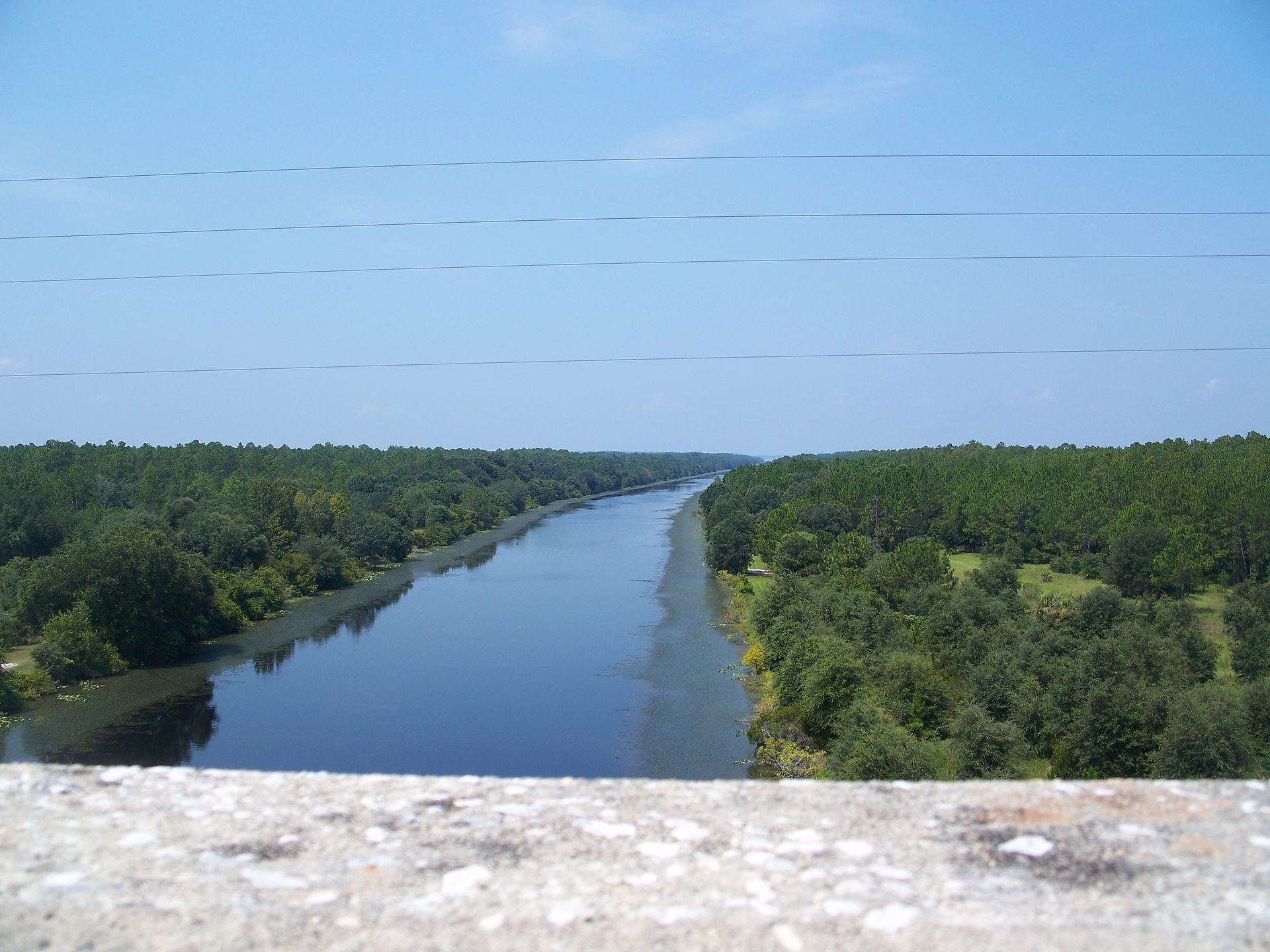History Repeating Itself? St. Johns River Deep Dredging and Oklawaha River Restoration MOU
Have we learned anything from the Cross Florida Barge Canal?

One of the two completed sections of the Barge Canal, looking west from the SR 19 bridge south of Palatka. Source: Wikipedia, CC BY 2.5 by Ebyabe.
Here is Sierra Club's take on the prospective Memorandum of Understanding (MOU) between the St. Johns Riverkeeper and stakeholders favoring Deep Dredging:
JACKSONVILLE, FL — Sierra Club has opposed the dredging of the St. Johns River to 47' on environmental and economic grounds. We have aligned with the St. Johns Riverkeeper, as well as other environmental organizations which feel the environmental risks and costs to the taxpayers are grossly understated; economic benefit and jobs are overstated.
Sierra Club acknowledges the proposed memorandum of understanding between Riverkeeper, JAXPort, the City administration and the Chamber of Commerce to restore the Ocklawaha River. Removal of the Rodman dam on the Ocklawaha River would markedly increase the flow of fresh water into the St. Johns River, and could offset some of the increased salinity impacts the St. Johns River will suffer as a result of the port dredging.
Sierra Club, along many others, including state and federal authorities, has long supported efforts to undo some of the environmental damage caused by the debacle that was the Cross Florida Barge Canal by restoring the Ocklawaha River to its natural state.
Nevertheless, Sierra Club fears that those efforts merely trade an old environmental and economic disaster for a new environmental and economic disaster--harmful environmental effects, and comparisons with other ports indicate that the dredging and other costs will negatively impact the city's finances for the foreseeable future. What have we learned in the half century since the Barge Canal was abandoned?
The prospective Ocklawaha agreement notwithstanding, Sierra still sees a multitude of environmental concerns, including those unaddressed about:
- Increased erosion of the banks of the river, and loss of real property,
- Damage to the rock layer that protects the Hawthorne Aquifer, a likely future source of drinking water for our region, and
- Inadequate mitigation funds to address unanticipated environmental impacts.
The fact is, the full extent of harm from the port dredging is still largely unknown.
Dubious economic data is a concern for taxpayers in Jacksonville, who will see a rise in taxes to pay for the costs. Many costs are omitted from the equation, such as potential cost to raise the Dames Point Bridge if the big ships do come—remember the cruise terminal issue? How about costs to augment railroads and roadways?
Taxpayers of Northeast Florida must ask themselves if there are better ways to spend $400-$700 million dollars, in view of the Police and Fire Pension Fund liability, addressing crime and needs for developing opportunities for the poor, dealing with widespread septic tank failures, road and bridge maintenance and development pressures on infrastructure and costs to the community.
We urge citizens of Jacksonville to look at the full scope of environmental risks, potential restoration of the Ocklawaha notwithstanding, and consider the significant financial unknowns when the results of the Mayor's Task force are released and as public dialogue continues.
An American Heritage River is a terrible thing to waste. (U.S. Congress Representative Corrine Brown championed the successful effort to designate the St Johns River as one of only 14 American Heritage Rivers. http://en.wikipedia.org/wiki/American_Heritage_Rivers)